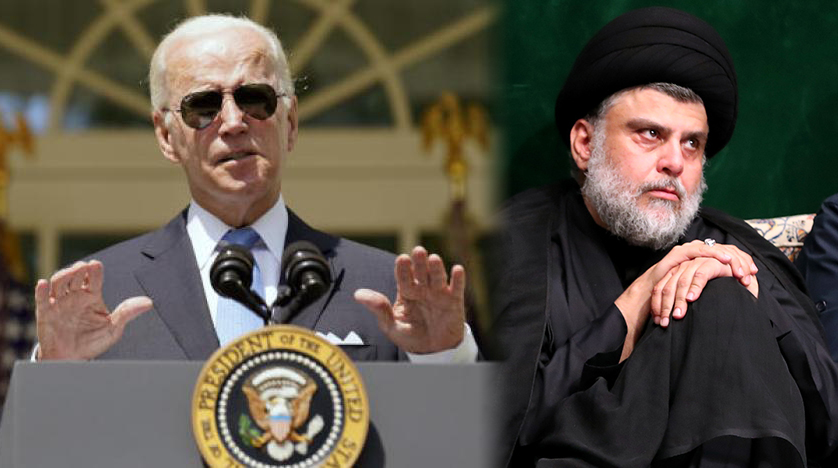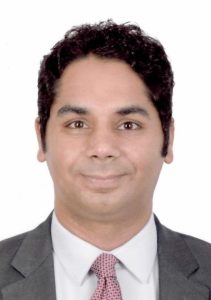As the political crisis in Iraq deepens, with failed attempts to reach consensus on naming a prime minister, the resignation of the Sadrist block from parliament, and the power struggle between the competing Shiite blocs spilling out into the streets, the US is under pressure to take a stance on political developments in Iraq.
Washington has traditionally taken a negative view of Muqtada al-Sadr, as following the US invasion of Iraq in March 2003, the Sadrist Mahdi militia led operations against US forces. However, al- Sadr’s endeavors, as leader of the bloc that won the largest number of seats in the last parliamentary elections, to form a government that excluded Iranian-backed factions from power were welcomed by the US. The latter hoped al-Sadr’s success would undermine the strength of pro-Iran Shiite militias and move Iraq into the sphere of US regional allies.
But the Biden Administration became concerned by Al-Sadr’s encouragement to his supporters to storm the Iraqi parliament in the Green Zone (which also encompasses government buildings and foreign embassies). The storming and sit-ins by al-Sadr followers were an expression of protest against the nomination by the “Coordination Framework” (his rival Shiite parliamentary bloc) of a candidate for prime minister, Mohammed al-Sudan. This has escalated calls within the US to withhold support from al -Sadr, as some perceive that his resort to fomenting instability casts doubts on his suitability as a means of limiting Iran’s influence in Iraq.
The US is concerned that the Sadri movement’s protests and its escalating tensions with political opponents will propel the country into a new era of instability, putting further pressure on the Iraqi political system that has been ravaged by crises since the overthrow of former President Saddam Hussein by US forces two decades ago. Various US assessment’s view that developments risk propelling Iraq into the sphere of failed states in the Middle East that are within Iran’s sphere of influence. The two competing Shiite forces, it must be noted, have so far avoided resorting to armed confrontations, although the incursion of Sadr’s supporters into the Green Zone indicates that this remains a possibility.
These developments have also sparked debate over Washington’s role and political influence in Iraq. There is a general perception that US influence has significantly diminished in favor of Tehran, and questions on whether Iraq remains a high priority for the US. There are around 2,000 US soldiers still stationed there to fight against remnants of ISIS, down from 170,000 US soldiers that were on the ground there following the US invasion. It is important to note that the Biden Administration asserts that Iraq will remain a priority in US foreign policy, and one of the US’s most important partners in the Middle East. One US State Department official described US-Iraq relations as “cornerstone to the region’s stability.”
The US is also watching Iran’s stance towards the political crisis in Iraq, viewing its ability to manage the confrontation between Iraq’s rival Shia factions as having implications for negotiations regarding Iran’s nuclear program. Esmail Qaani, the Quds Force commander visited Iraq on 27 July, as Iran attempts to prevent the escalation of tensions. Iran is concerned that recent developments in Iraq are detrimental to its interests there, particularly as they follow Hezbollah’s loss of parliamentary majority in Lebanon last May.
In conclusion, it is to be expected that US attention to the political crisis in Iraq will likely increase in the near future, as the US perceives that its continuation will have a profound impact on Iraq, the region, and the world. Civil conflict in Iraq would undermine the flow of Iraqi oil to a global market already suffering from high oil prices following the Russian-Ukrainian war. Moreover, the Biden Administration continues to believe that a democratic, stable and sovereign Iraq is in US interest. The US could work with its allies across the Iraqi political spectrum, its partners in the region, Europe and the UN, to encourage dialogue between various Iraqi stakeholders to break the current political deadlock and establish a format to bring about political stability.


